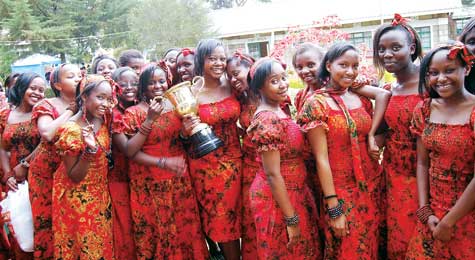×
The Standard e-Paper
Join Thousands Daily
 |
| Buru Buru Girls display trophy after winning in the adaptation class. [Photos: George Orido/Standard] |
By George Orido
The adaptation and arrangement of African pop music remains the most popular class in the just concluded Kenya Music Festivals in Meru town.